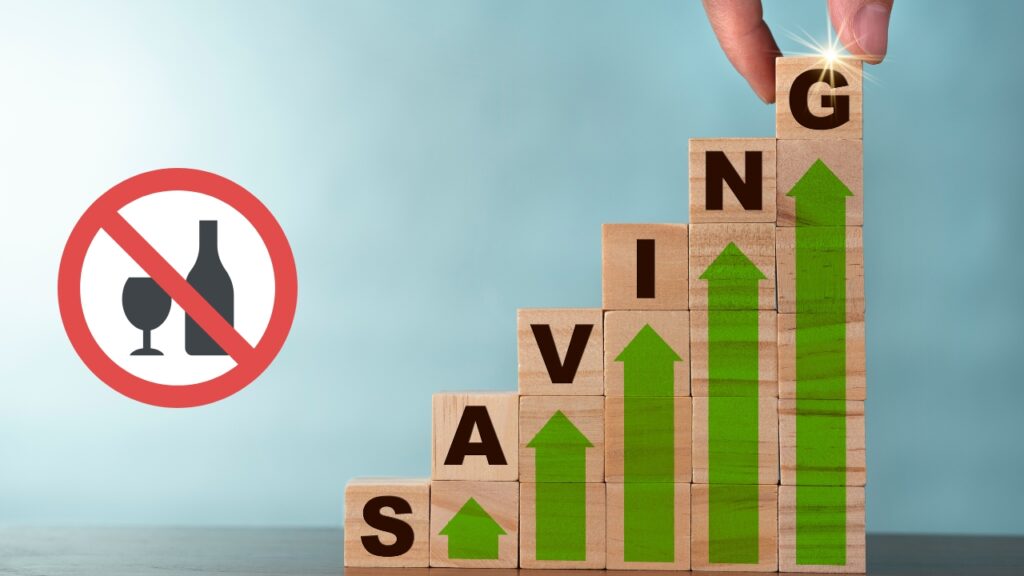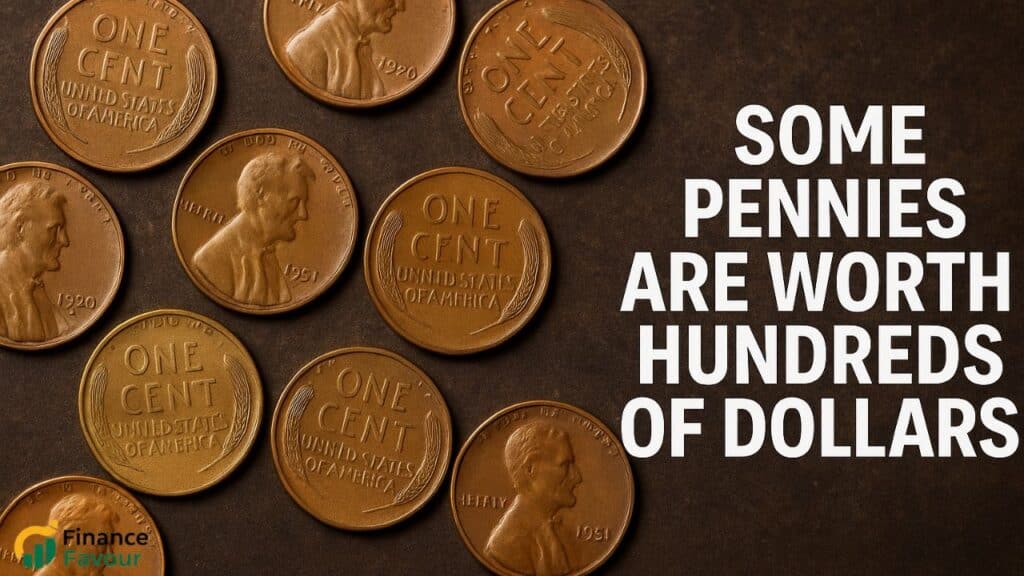Alcohol – More Than Just a Beverage
We tend to think of alcohol as a social lubricant, a weekend indulgence, or a celebration companion. But have you ever taken a hard look at just how much it’s costing you? Not just in money, but in time, health, productivity, and mental peace? It’s easy to overlook the small purchases $10 here, $15 there but those drinks stack up faster than you realize. In fact, what might seem like a minor habit could be quietly draining your wallet and stunting your financial goals.
Think about your last night out. A couple of beers, maybe a cocktail or two, and suddenly your tab is pushing $50. Multiply that by a few nights a month, throw in some spontaneous rounds or extra drinks to cope with stress, and before you know it, you’re shelling out hundreds sometimes thousands of dollars a year. That’s not just money down the drain; that’s potential travel, investments, or even debt reduction.
Why People Overlook the Financial Impact
Alcohol spending hides in plain sight. It’s socially acceptable, even encouraged, and it rarely gets scrutinized like a gym membership or a cable bill might. After all, it’s “just a drink.” But that normalization is exactly why many people never connect the dots between their alcohol consumption and financial strain.
What’s more, many drinkers underestimate their own intake. A few drinks a week may not feel excessive, but when you break down the cost and the added expenses it brings it becomes clear just how much money is going out the window.
Breaking Down the Cost of Alcohol
Weekly Spending Habits
Let’s start with some simple math. Suppose you’re someone who enjoys three drinks a week, each costing around $10 when factoring in tips and taxes. That’s $30 per week $120 a month. Multiply that by 12 months, and you’re looking at $1,440 a year. And that’s for someone with relatively modest habits.
Now, for those who go out for drinks on weekends or attend regular happy hours, that number can easily climb to $50–$100 per week. That’s $2,600–$5,200 per year. Imagine what you could do with even half of that pay down debt, invest in a side hustle, or take a dream vacation.
Monthly and Yearly Accumulation
Alcohol expenses are one of those sneaky, recurring costs. Much like subscriptions, they’re habitual and almost invisible until you add them up. Here’s a quick comparison:
| Consumption Level | Weekly Spend | Monthly Spend | Yearly Spend |
| Light Drinker (3 drinks) | $30 | $120 | $1,440 |
| Social Drinker (6 drinks) | $60 | $240 | $2,880 |
| Heavy Drinker (10+ drinks) | $100+ | $400+ | $5,200+ |
Even if you’re in the lowest bracket, imagine putting that $1,440 into an investment account. With modest returns, you could turn that into $15,000 in a decade without even noticing the money missing.
The Hidden Extras: Tips, Taxis, Snacks & Hangover Cures
What about the extras? Alcohol rarely travels alone. Think about late-night food runs, Ubers home, cover charges for clubs, and hangover remedies the next day. These “accessory costs” can easily double your spending.
- Tips and taxes: Easily 20–30% more per drink.
- Late-night food: $10–$30.
- Rideshare services: $15–$40 per night.
- Missed work or lost productivity: Priceless.
These aren’t just occasional costs they’re routine for many. When you stack it all up, alcohol doesn’t just chip away at your finances; it hacks away chunks of your potential wealth.
Real-Life Examples of Alcohol Savings
Case Study 1: Social Drinker
Meet Jake, a 30-year-old marketing executive who enjoys going out with friends every weekend. On average, he has four drinks per outing at $12 each (including tips). That’s $48 per weekend, or $192 per month. Add in the occasional Uber ride ($20 roundtrip twice a month) and some late-night snacks ($15), and Jake’s spending rises to about $270 monthly or $3,240 per year.
After realizing the cost, Jake decided to take a three-month break from drinking. In that short time, he saved over $800, which he used to buy a new laptop and sign up for an online course to boost his skills. The surprising part? He didn’t miss the drinks as much as he thought he would. Socializing without alcohol turned out to be more genuine, and he felt more energized in the mornings.
Case Study 2: Daily Drinker
Now take Linda, a 45-year-old professional who enjoys a glass of wine every evening to unwind. Her habit seems harmless one bottle of wine a week at $20. But occasionally, she buys two bottles, and sometimes a fancier bottle at $30. Her monthly spend averages $100, which comes out to $1,200 annually.
But Linda didn’t just stop there. She noticed that her nightly wine ritual was paired with mindless snacking and reduced sleep quality. After quitting, not only did she save money, but she also lost 10 pounds and started sleeping better. That year, she repurposed her savings to fund a yoga retreat something she had always wanted to do but thought she couldn’t afford.
Case Study 3: Occasional Binge Drinker
Then there’s Ryan, a 25-year-old who doesn’t drink daily, but when he does watch out. His monthly drinking pattern is unpredictable but intense. A birthday party here, a concert there he could drop $200 in one weekend and not drink again for weeks. Over the course of a year, these random but heavy drinking occasions totaled over $2,500.
After one particularly brutal hangover, Ryan decided to reassess. He took a “dry year” challenge. By documenting every event he skipped or went to sober, he realized just how often he drank simply to fit in. He redirected his savings toward travel, taking a month-long backpacking trip across South America a dream he always had but never thought possible financially.
Financial Benefits Beyond the Bottle
Lower Healthcare Expenses
Alcohol impacts your body in more ways than you might think. It can raise blood pressure, impair liver function, weaken the immune system, and worsen mental health. Chronic drinkers are at a higher risk for everything from heart disease to depression.
Cutting out alcohol doesn’t just prevent long-term diseases it also reduces short-term healthcare visits. No more doctor appointments for frequent headaches, digestive issues, or insomnia. Fewer prescriptions. Fewer over-the-counter medications. In the U.S., healthcare costs associated with alcohol-related problems can add thousands to one’s yearly expenses.
Let’s put it in numbers. Avoiding just two urgent care visits a year at $250 each saves you $500. Skip one trip to the ER due to alcohol-related injury? That’s another $1,000–$3,000 saved. These are not exaggerations they’re real-life figures many don’t consider.
Decreased Insurance Premiums
What many people don’t realize is that alcohol consumption can impact your life insurance and health insurance premiums. When applying for a policy, insurers look at your drinking habits. If you drink regularly even if it’s not excessive you may face higher rates or additional medical screenings.
Some auto insurance companies also factor in DUI histories or alcohol-related offenses, which can skyrocket your premiums. Even one incident could cost you thousands over the years. By living alcohol-free, you’re not just avoiding those risksyou’re actively building a safer, more insurable profile.
Boosted Work Productivity and Income
Ever gone to work hungover? You’re not alone. Alcohol-induced sluggishness can tank productivity, increase errors, and even lead to disciplinary issues. While one or two hangovers a month might not seem like much, over time, it adds up to lost promotions, missed opportunities, and a reputation that’s hard to shake.
On the flip side, people who give up alcohol often report increased mental clarity, better focus, and improved decision-making. They show up more, they perform better, and they climb higher financially and professionally. If your productivity gains you a promotion or allows you to take on a freelance side hustle, you could be talking about a raise worth thousands annually.
The Snowball Effect of Financial Discipline
Budgeting Made Easier
Once you eliminate alcohol, it’s like pulling a big leak out of your budget. Suddenly, things seem to fall into place. You have more disposable income and fewer impulse purchases. The discipline required to skip the drink carries over into your overall spending. That $100 you’d have spent at a bar? Now it’s going toward credit card payments, emergency savings, or even your dream vacation.
By taking control of your alcohol expenses, you’re training your brain to be more financially mindful. You start asking yourself: “Do I need this?” rather than “Why not?” Over time, that shift becomes second nature.
Opportunities to Invest or Save
Imagine what happens when you invest even $200 a month the average saved by cutting out alcohol at a 7% annual return. In 10 years, you’d have over $35,000. That’s a new car. A down payment on a home. A cushion for your children’s education.
These numbers aren’t theoretical they’re within reach for millions of people. The key is consistency. Every drink skipped is a dollar earned, saved, and grown.
How Alcohol-Free Living Can Improve Credit Scores
It might seem like a stretch, but hear me out. Cutting alcohol improves your spending habits. That leads to more money available for bill payments, debt reduction, and saving. When you start paying off credit cards faster and on time, your credit utilization drops and your score goes up.
Better credit scores lead to better loan terms, lower interest rates, and even rental opportunities. Alcohol may be liquid, but its effects can be rock-solid obstacles to financial freedom.
Lifestyle Upgrades You Can Afford Without Alcohol
Travel and Experiences
Let’s talk about what you could be doing with the money you’re no longer pouring into your glass. Love the idea of sipping coffee in Paris or hiking the Inca Trail in Peru? Cutting out alcohol makes it possible. For someone who saves even $250 a month by not drinking, that’s $3,000 a year enough for a round-trip international flight, accommodations, and more.
Travel isn’t just a luxury it’s an investment in memories and personal growth. And when you realize that your bar tab could fund a week on a beach in Thailand or a road trip across the U.S., your priorities might shift. Alcohol gives you a moment of escape. Travel gives you a lifetime of perspective.
Home Improvements and Decor
Think about all the upgrades you’ve dreamed about for your home a better couch, new kitchen appliances, maybe even a backyard makeover. That money you were spending on alcohol could be used to transform your living space.
Even smaller improvements like repainting a room, adding plants, or investing in a standing desk can make your environment healthier and more inspiring. A comfortable, beautiful space pays off in increased mental well-being, productivity, and peace of mind. And the best part? It’s all achievable with the money you’re no longer spending on drinks.
Fitness, Wellness, and Self-Care
One of the most immediate and noticeable benefits of ditching alcohol is how much better you feel. Why not take that further with investments in your physical and mental health? Whether it’s joining a gym, getting regular massages, or signing up for healthy meal kits, the money you save can be redirected toward becoming the best version of yourself.
And let’s not forget therapy or coaching. Alcohol is often a crutch for emotional struggles. When you stop drinking, you may finally feel ready to address those issues head-on. Putting your money into professional help or self-care routines isn’t just smart—it’s powerful.
How to Quit Drinking and Save Money
Setting Clear Financial Goals
Success starts with a target. Want to pay off $5,000 in credit card debt? Save for a vacation next summer? Build a six-month emergency fund? Write it down. Make it real. Knowing what you’re aiming for helps you stay focused when temptations arise.
Set up a separate savings account labeled with your goal “Italy Trip 2026” or “New Car Fund.” Each week, transfer the amount you would’ve spent on alcohol. Watch it grow. Every time you see the balance increase, you’ll feel a stronger sense of purpose and motivation.
Finding Free or Low-Cost Substitutes
Quitting drinking doesn’t mean giving up your social life. It just means changing how you engage. Swap the bar for a coffee shop. Replace cocktails with mocktails or sparkling water with fruit. You can even host alcohol-free gatherings with games, music, and laughter minus the hangover.
There are tons of alcohol alternatives now on the market, from zero-proof spirits to kombucha. Find what works for you and make it fun. You’re not giving something up you’re gaining control and discovering new preferences.
Creating an Alcohol-Free Social Life
One of the biggest fears people have is losing friends or feeling isolated after quitting drinking. The truth? The right people won’t leave you—they’ll support you. And often, you’ll find new friends who align better with your values and goals.
Start by suggesting alcohol-free activities hiking, movie nights, potlucks, art classes. Don’t be afraid to be the trendsetter. You’ll be surprised how many others are also looking for a break from drinking but were just waiting for someone to speak up.
Tracking Your Progress and Celebrating Milestones
Budgeting Apps and Tools
Technology can be your best ally. Use budgeting apps like Mint, YNAB (You Need A Budget), or PocketGuard to track your savings. Some apps even let you tag your spending as “alcohol” so you can see exactly how much you’re not spending each month.
Seeing your savings add up is both motivating and empowering. It shifts your mindset from restriction to reward. You’re not cutting out—you’re building up.
Rewarding Yourself Smartly
Here’s a tip: celebrate your wins. Each month you go without alcohol, treat yourself to something meaningful but within reason. Maybe it’s a massage, a new book, or tickets to a show. Just make sure it aligns with your goals and doesn’t sabotage your progress.
Use a reward system. For every $100 you save, allow yourself a $10–$20 treat. It keeps the journey enjoyable and gives you something tangible to look forward to.
Joining Communities for Motivation
You don’t have to go it alone. There are thousands of alcohol-free communities online and in-person. From Reddit groups like r/stopdrinking to local sober meetups, support is everywhere.
Joining these spaces gives you access to advice, encouragement, and accountability. People share their savings milestones, health improvements, and life transformations. You’ll be inspired and you’ll inspire others in return.
The Emotional and Mental Savings
Reduced Anxiety and Depression
Alcohol is a depressant. While it might take the edge off in the moment, it actually worsens anxiety and depression in the long run. Many people who stop drinking report feeling more emotionally stable, balanced, and in control.
Without alcohol clouding your system, you’ll have a clearer picture of your emotions and a better chance of managing them in healthy ways. You may still have bad days, but they’ll be less intense, less frequent, and less destructive.
Better Sleep and More Energy
Alcohol disrupts sleep cycles. Even a small amount can reduce REM sleep the deep, restorative kind. That’s why you often wake up groggy after a night of drinking, even if you got eight hours.
When you quit, your sleep quality improves dramatically. You wake up refreshed, your energy soars, and your cognitive function sharpens. It’s like discovering a new superpower you never knew you had.
Stronger Relationships and Clarity
Finally, let’s talk about connection. Alcohol can blur your communication, weaken your empathy, and lead to conflicts or misunderstandings. When you remove it, your interactions become more honest, meaningful, and rewarding.
You also start to see people and situations for what they really are. The clarity you gain helps you make better decisions about your relationships, your career, and your future. It’s one of the most valuable forms of wealth you can have.
Common Pitfalls and How to Avoid Them
Substituting One Habit for Another
Quitting alcohol is powerful but be cautious of swapping one costly or unhealthy habit for another. Many people unconsciously replace drinking with excessive eating, shopping, or binge-watching. The urge to fill that void is natural, but unchecked, it can sabotage your progress both financially and emotionally.
The key is mindfulness. When you feel the urge to indulge, pause and ask yourself: What do I really need right now? Is it comfort? Stimulation? Connection? Use that insight to choose healthier alternatives like going for a walk, journaling, calling a friend, or sipping herbal tea. It’s about addressing the need, not masking it.
Social Pressure and Triggers
Let’s be real society still normalizes drinking. You’ll likely face awkward questions or even pushback from friends and family. “Just one won’t hurt.” “Are you pregnant?” “Come on, live a little.”
Prepare your responses in advance. Be confident, kind, and clear. “I’m just taking a break.” “I’m saving for something big.” “I feel better without it.” You owe no one an explanation but it helps to have one ready.
Also, recognize your triggers. Certain people, places, or emotional states might tempt you. Plan ahead. Bring a non-alcoholic drink to parties. Set boundaries. Say no when needed. You’re not being difficult—you’re being disciplined.
Dealing with Setbacks Without Spending
Slip-ups happen. One drink doesn’t undo your progress, but it can trigger shame and shame often leads to overcompensating behaviors like shopping or eating out. If you stumble, be gentle with yourself. Reflect, reset, and move forward.
Focus on your “why.” Keep your financial goals visible on your mirror, phone, or fridge. Remind yourself of how far you’ve come. Celebrate progress, not perfection. The path to lasting change is never linear, but it is always worth it.
Comparing the Cost: Alcohol vs. Other Luxuries
Is Drinking Really Worth It Compared to Travel?
Here’s a visual exercise: Place your weekly alcohol spend next to a photo of your dream destination. Let’s say it’s $100 a week over $5,000 a year. That could easily pay for:
- A two-week trip to Europe.
- A full month in Southeast Asia.
- A luxury cruise with all expenses covered.
Ask yourself: would I rather have a few fleeting nights out, or an unforgettable life experience? Travel enriches your soul. Alcohol fades by morning. When you reframe spending this way, the choice becomes clearer.
What Else Could You Do With That Money?
It’s not just about travel. Your alcohol budget could fund:
- A home gym setup.
- Courses to start a new career or hobby.
- Paying off high-interest debt.
- Building an emergency fund or retirement nest egg.
- Helping a loved one in need.
Each of these investments has long-term returns. Alcohol has none. The question isn’t just what you’re spending—it’s what you’re missing out on.
The Surprising Long-Term Financial Impact
Saving for Retirement or a Home
Imagine redirecting your alcohol expenses into a retirement account starting at age 30. Investing $300 a month at a 7% return would give you over $350,000 by retirement. That’s the power of compounding.
Or maybe you want to buy a house. If you save $10,000 over five years by not drinking, that could be your down payment. Alcohol gives you a buzz. Financial independence gives you freedom.
Building Emergency Funds
Financial experts recommend having 3–6 months’ worth of expenses saved. That’s tough to do if you’re leaking money through lifestyle spending. Cutting out alcohol can help you build that safety net faster.
With an emergency fund, you won’t panic when your car breaks down or a medical bill hits. Peace of mind? That’s priceless.
Leaving a Legacy for Your Family
The money you save doesn’t just impact you it can benefit your loved ones. Maybe it funds your child’s education. Maybe it allows you to take care of aging parents. Maybe it becomes a donation to a cause close to your heart.
You’re not just saving money you’re shaping a legacy.
Expert Opinions and Statistics
What Financial Advisors Say
Most financial planners agree: small, consistent changes lead to the biggest long-term gains. Cutting alcohol is a smart move because it combines immediate cash flow improvement with better decision-making and health.
As one advisor put it, “Alcohol is a lifestyle expense that disguises itself as necessity. Once removed, people are often shocked at how much richer literally and figuratively their lives become.”
Health Experts on Long-Term Costs of Drinking
According to the CDC, excessive alcohol use costs the U.S. economy $249 billion annually. That’s from healthcare, lost productivity, and accidents. On an individual level, chronic drinkers can spend tens of thousands more over a lifetime not just in alcohol, but in related expenses.
Health experts warn that even moderate drinking can have long-term effects on liver health, mental health, and life expectancy. Financially and physically, the costs are steep.
National Spending Data on Alcohol
Data from Statista shows that the average American household spends approximately $515 per year on alcohol purchased for home consumption—this doesn’t include bars, restaurants, or social outings, which often triple that amount.
In total, alcohol-related spending can easily reach $1,500 to $3,000 annually for a typical drinker. That’s the equivalent of a secondhand car, a home renovation, or a starter investment portfolio.
Making the Shift – It’s Not Just About Money
Redefining Fun and Relaxation
Giving up alcohol doesn’t mean giving up fun. It means redefining what fun looks like game nights, travel, morning hikes, creative projects, laughter without regret. Once you break the belief that alcohol is essential for enjoyment, you unlock a deeper, more satisfying way to live.
Living a More Conscious Life
When you remove alcohol, you start making more intentional choices in every area of life what you eat, who you spend time with, how you spend your time. You stop drifting and start directing. You begin to live on purpose.
Inspiring Others to Join You
Your decision to cut out alcohol isn’t just about you it’s a ripple effect. Friends might be inspired. Family may follow suit. You could be the reason someone else takes back their health, wealth, and happiness.
You’re not just saving money. You’re changing lives including your own.
Conclusion – It’s Not Just a Drink, It’s a Decision
Cutting out alcohol might seem like a small lifestyle change, but the impact it can have on your finances, your health, and your future is enormous. Every drink skipped is money saved, clarity gained, and power reclaimed. Whether you’re doing it for a month, a year, or forever, the rewards go far beyond the bar tab.
It’s about choosing more more freedom, more focus, more opportunities, and a better, brighter future. And that, my friend, is a decision worth making.
Check this post Guide to Emergency-Proofing Your Finances
FAQs
On average, a moderate drinker can save between $1,200 to $3,000 annually, depending on frequency and drinking habits.
Redirect your money into savings, investments, travel, self-care, or skills development. These provide lasting value and improve quality of life.
Yes. Many report increased energy, sharper focus, fewer sick days, and improved productivity after quitting.
Immediate savings begin in the first week. By the end of the first month, many report saving $100–$300.
Yes. Apps like YNAB, Mint, and Sober Time can track savings and progress. Some even help monitor days sober and goals reached.




